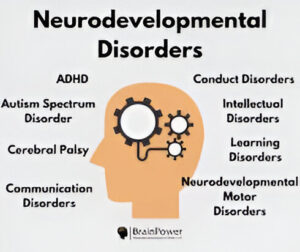Understanding a child’s unique developmental path is key to supporting their health, learning, and emotional well-being. For many families, concerns about behaviour, attention, language, or learning difficulties can arise early, sometimes as early as preschool. In such cases, a comprehensive neurodevelopmental assessment becomes a crucial first step toward clarity and proper support.
These evaluations go beyond basic checklists or observations—they provide a detailed picture of a child’s brain-based functions, helping clinicians and parents understand what lies beneath the surface. Let’s explore why neurodevelopmental assessments matter so much, especially when there are concerns related to learning, communication, and behaviour.
What Are Neurodevelopmental Assessments?
Simply put, neurodevelopmental assessments are in-depth evaluations of a child’s brain development and functional abilities. They are designed to examine how a child’s nervous system is developing and whether any challenges might affect their thinking, behaviour, learning, or social interactions.
These assessments typically include:
-
Detailed developmental history
-
Observations of behaviour and interaction
-
Standardised cognitive and language tests
-
Motor and sensory evaluations
-
Parental and teacher input through structured questionnaires
Unlike a general health check, a neurodevelopmental assessment is comprehensive and highly individualised. It involves a multidisciplinary team that may include pediatric neurologists, psychologists, speech-language therapists, and occupational therapists.
Why Early Identification is So Important

While some developmental delays resolve naturally, others may signal deeper neurological or cognitive differences. The earlier these concerns are identified, the better the outcomes for the child.
Neurodevelopmental assessments help:
-
Spot patterns that indicate developmental disorders
-
Pinpoint the child’s strengths and areas of difficulty
-
Guide timely interventions and therapies
-
Support educational planning tailored to the child’s needs
Early identification allows children to access specialized services during critical windows of brain development, when interventions are most effective. Therefore, delaying a proper evaluation can lead to missed opportunities for progress.
How These Assessments Aid in Diagnosis
When a child struggles with attention, communication, or emotional regulation, parents often wonder whether it’s a phase or something more complex. Here’s where neurodevelopmental assessments play a diagnostic role. They help distinguish between various conditions that may have overlapping symptoms but different underlying causes.
For example:
-
A child who avoids eye contact and struggles with social cues may have social anxiety, or it could be part of a broader neurodevelopmental difference.
-
Difficulty focusing could stem from fatigue or environmental distractions, or it may relate to a neurological condition.
Through structured observations, standardized tools, and cross-disciplinary collaboration, these assessments clarify whether the child’s challenges fall within typical developmental variations or require medical attention.
Bridging the Gap Between Behavior and Brain Function
Often, outward behaviors are the first sign that a child may need support. But behavior alone doesn’t provide a complete diagnosis. This is where the neurodevelopmental approach offers significant value—it looks beneath the behavior to examine how the brain is processing information, organizing thoughts, and managing emotions.
Key domains evaluated include:
-
Executive function (planning, organizing, impulse control)
-
Language and communication skills
-
Motor coordination
-
Attention span and memory
-
Sensory processing
Because of this holistic focus, a neurodevelopmental assessment doesn’t just label—it informs. It equips families with insight, allowing them to support their children with understanding and purpose.
Supporting School and Home Life
As children grow, academic and social demands increase. Without the right support, even a mild delay or difficulty can escalate into significant challenges. A properly conducted neurodevelopmental assessment identifies where and how a child needs support, ensuring both educators and parents can adapt their approaches.
Benefits in the school environment:
-
Allows creation of Individualized Education Plans (IEPs)
-
Helps teachers understand the child’s learning style
-
Encourages inclusive classroom strategies
At home, it helps parents:
-
Develop realistic expectations
-
Implement behavior strategies
-
Foster emotional resilience
With such targeted information, both schools and families can nurture the child’s development proactively, not reactively.
When to Consider an Assessment
So, when should a parent or caregiver seek a neurodevelopmental evaluation? While every child develops at their own pace, certain red flags warrant further investigation.
Consider an assessment if your child:
-
Has significant language delays
-
Struggles with attention, impulsivity, or hyperactivity
-
Shows signs of sensory overload or withdrawal
-
Has difficulty forming peer relationships
-
Displays repetitive behaviors or extreme emotional reactions
Importantly, these signs don’t guarantee a diagnosis of a developmental disorder, but they do indicate that further exploration is beneficial.
The Path Forward: A Conclusion
In conclusion, neurodevelopmental assessments are powerful tools in understanding children’s unique developmental journeys. They not only offer answers but also provide direction, helping families find the right therapies, school accommodations, and support networks.
Whether your concerns are mild or more pressing, seeking an evaluation early can make a significant difference in your child’s quality of life. Furthermore, these assessments lay the groundwork for targeted interventions that can transform challenges into manageable goals.
For families navigating questions about ADHD and autism, expert assessments are even more crucial. A reliable, comprehensive evaluation helps distinguish between diagnoses that often present similarly but require different types of support. According to Dr Vivek Mundada, a leading pediatric neurologist, early and accurate diagnosis, supported by a detailed neurodevelopmental assessment, can drastically improve long-term outcomes for children with complex needs.



